TB TESTING & TREATMENT
Tuberculosis
Tuberculosis (TB) is a bacterial infection spread through the respiratory droplets of an infected person. Our Public Health team investigates and manages both latent TB infection and active TB disease in our community, emphasizing that TB is treatable and preventable through screenings and prophylactic treatment.
Our Preventive Health Clinic, provides comprehensive TB diagnostics, treatment and case management. Our nurses and program personnel work to stop the spread of the disease by monitoring individuals who have been exposed to the bacterium or, especially, who have active cases of tuberculosis. We investigate cases in various settings and offer affordable skin tests, blood tests (QFT), comprehensive testing, education, and necessary treatments for those who suspect TB exposure and those who have active TB.
TB is an immediately notifiable disease requiring immediate reporting to the health department. Our staff can be reached at 770-339-4280. Treatment for active TB disease is required by GA law.
Clinic Services
TB Skin Test (PPD/TST)
This test aids in the evaluation of Tuberculosis infection. It is performed by injecting a small amount of fluid (called tuberculin) into the skin on the lower part of the arm. Once given the test, you must return within 48 to 72 hours to have a trained health care worker look for a reaction on the arm. A positive or negative diagnosis will be given based on the size of the raised, hard, or swelling area.
QuantiFERON Test
Like the skin test, this blood test aids in the evaluation of tuberculosis infections, especially for those who are foreign born and had a history of BCG vaccine. After a sample of your blood is taken, it is then sent to a lab to determine whether you are infected with the bacteria that causes Tuberculosis.
TB Clearance Form for School, Work, etc.
This form provides assurance that you or your child does not have tuberculosis at the time of exam. This form does not imply any guarantee or protection from future tuberculosis risk for the individual listed. Re-testing may be necessary if you or your child previously tested negative, and have new risk factors since the last assessment.
Digital TB Related Radiology
X-rays and other radiology tools and methods can be used to detect subtle signs that may indicate a tuberculosis infection.
Treatment and Management of Active TB
When TB bacteria live in the body and make you sick, this is called active TB disease. Active TB disease requires treatment and immediate reporting to the health department. Individuals with active pulmonary TB, disease in their lungs or respiratory tract, can spread this infection to others, so prompt reporting is critical to limit the spread of illness. Treatment for active TB requires several antibiotics for a period of 6 months or more to treat the disease. Appropriate treatment regimens are based on drug-susceptibility results, coexisting medical conditions (e.g., HIV, diabetes), and potential for drug-drug interactions. Treatment is required by law in GA.
Treatment and Management of Latent TB
When TB bacteria live in the body without making you sick, this is called latent TB infection. Without treatment, it is possible to develop TB disease. Latent TB requires antibiotics to treat the infection. Healthcare providers can choose the appropriate treatment regimen based on drug-susceptibility results, coexisting medical conditions (e.g., HIV, diabetes), and potential for drug-drug interactions.




